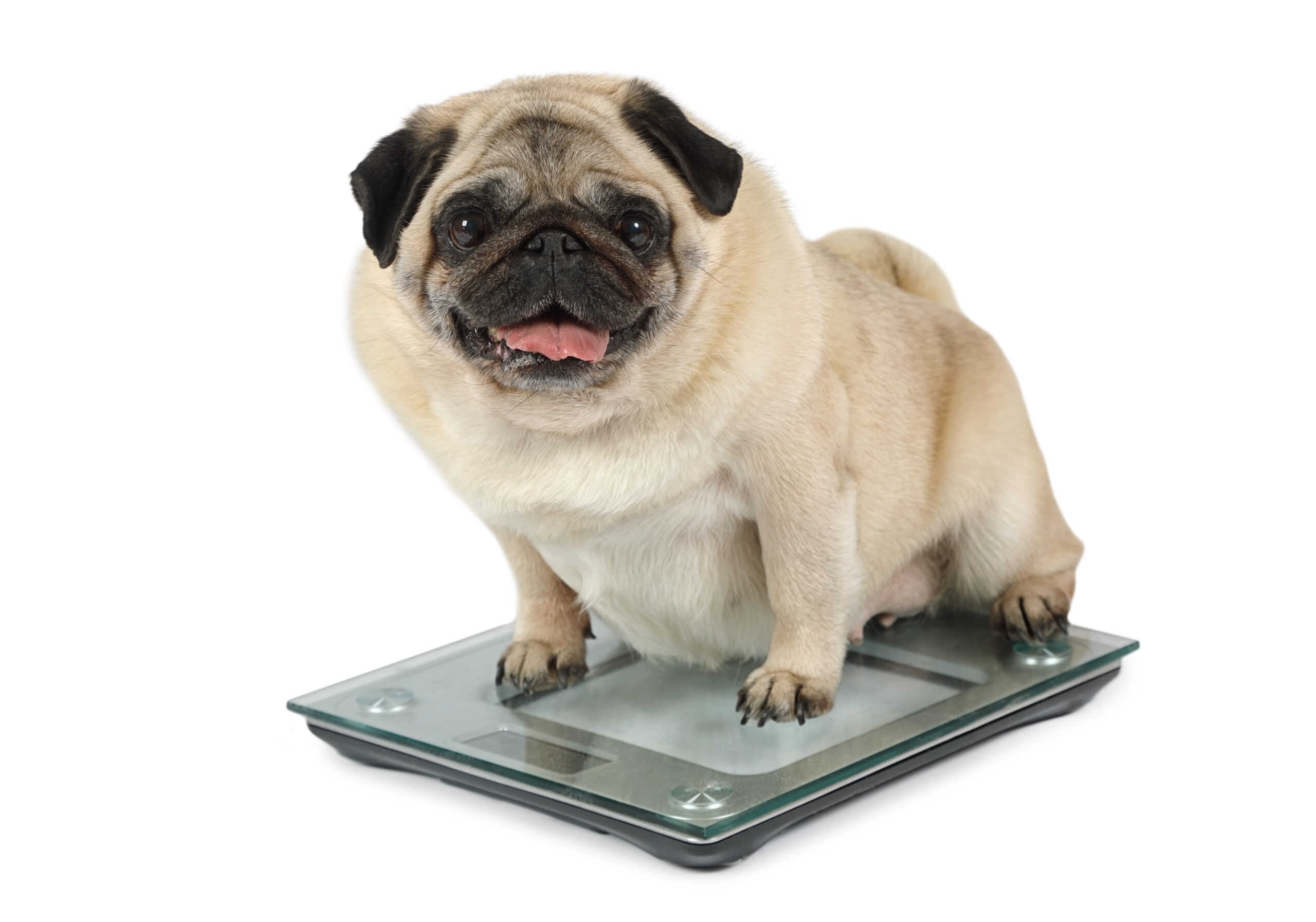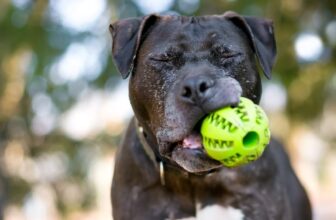
Check out our latest products
A new study finds that half our dogs are overweight. Learn the causes of canine obesity and how to help your dog reach a healthy weight.
If your dog is on the chunky side, he has plenty of company. A new study from Texas A&M University and the Dog Aging Project (DAP) shows that 50% of dogs in the U.S. carry extra weight. Why are so many dogs overweight? A variety of factors may be at play, including breed backgrounds, environment, and food motivation.
Understanding your dog’s love of food
“Our study confirmed that dogs in the sporting group — which in our cohort were largely Labrador and Golden Retrievers — have a greater likelihood of high food motivation,” said Dr. Kate Creevy, DAP’s chief veterinary officer. She is also a professor in the Texas A&M College of Veterinary Medicine and Biomedical Sciences’ Department of Small Animal Clinical Sciences.
The study further found that dogs in urban environments and those from multi-dog households are more likely to have higher food motivation.
“These factors likely influence the amount of exercise dogs get in addition to their access to food,” Dr. Creevy explained. “Some dogs may seek food out of boredom, which may increase in environments that offer less exercise and enrichment. Additionally, owners with multiple dogs may choose certain feeding practices — including free feeding — out of convenience, which can lead to more food being available.”
Helping your dog reach a healthy weight
Many dog parents know their canines are overweight and want to help them attain a healthy weight. However, the process isn’t straightforward.
“Previous research has shown that weight loss interventions for dogs are not always successful, especially if they’re not followed consistently,” said Dr. Creevy. “Sometimes there are issues in communication between the veterinarian and the owner, and given what we learned from this study, it’s also possible some breeds require stricter feeding practices.
“Overweight dogs are prone to numerous health problems, including skin disease, diabetes, and arthritis,” she adds. “It is imperative that veterinarians develop a better understanding of canine obesity and whether it may be linked to social, environmental, or demographic factors so we can give every dog the best possible quality of life.”
If you suspect your own dog is overweight, talk to your integrative or holistic veterinarian. He or she can recommend the best kind of food for your dog and help you set exercise goals and a feeding schedule that meets his needs.
Post Views: 1
Animal Wellness is North America’s top natural health and lifestyle magazine for dogs and cats, with a readership of over one million every year. AW features articles by some of the most renowned experts in the pet industry, with topics ranging from diet and health related issues, to articles on training, fitness and emotional well being.



![[PETHROOM] Cat Nail Clipper Trimmer for Indoor Cats with Circular Cut Hole (2mm) | Premium Sturdy Stainless Steel Blade Cat Claw | Safe, Easy, Accurate, Quiet & Fast | Avoid Overcutting](https://m.media-amazon.com/images/I/6156hi88deL._AC_SL1298_.jpg)
![[PETHROOM] Professional Eye Comb for Pets | Stainless Steel Tear Stain Remover for Cats & Dogs | Gentle Round-Head Grooming Tool | Compact & Portable for Eye Gunk Removal](https://m.media-amazon.com/images/I/71+W758uwXL._SL1500_.jpg)









